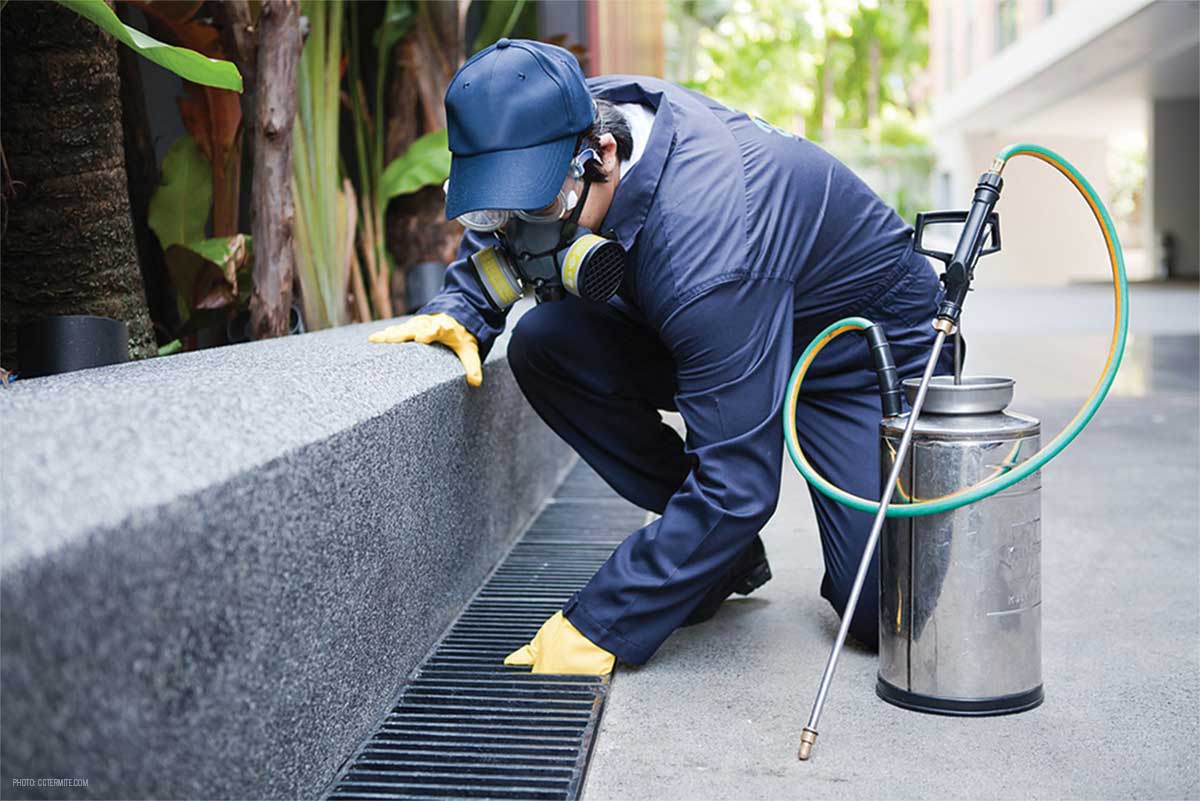Exterminator DC: Your Remedy for Pest-Free Staying In Washington DC!
Exterminator DC: Your Remedy for Pest-Free Staying In Washington DC!
Blog Article
Expert Insect Control Techniques for Long-Term Outcomes
Expert pest control strategies envelop a thorough method that starts with a complete inspection and assessment, complied with by precise insect identification to understand their actions patterns. The execution of Integrated Bug Monitoring (IPM) concepts, combined with eco-conscious treatments, creates the keystone of lasting parasite obliteration.
Assessment and Analysis
Upon getting in a property for bug control solutions, the initial action is a thorough examination and assessment to identify the degree of the problem and figure out the most effective therapy strategy. Expert parasite control professionals are trained to meticulously take a look at the premises, searching for indicators of bug task such as droppings, chomp marks, nests, or any kind of structural damage. They will also assess the problems that might be attracting pests, such as food sources, water leakages, or entry factors.

Bug Recognition and Behavior

Moreover, comprehending the actions of the recognized insect is crucial to applying efficient control steps. Understanding where pests nest, what they feed on, and their activity patterns can help pest control experts design techniques to eradicate them efficiently.
Integrated Parasite Management (IPM)
Integrated Insect Administration (IPM) methods integrate numerous techniques to control and stop parasite invasions in a lasting and ecologically friendly manner. bed bug treatment. By incorporating techniques such as organic control, habitat adjustment, alteration of social techniques, and making use of resistant varieties, IPM aims to minimize making use of chemical pesticides
One of the crucial concepts of IPM is the focus on prevention. This aggressive technique involves tracking bug populations frequently to discover any kind of potential problems before they intensify. By identifying pest issues early on, pest control measures can be deemak control applied promptly and efficiently.
Moreover, IPM promotes using non-toxic bug control methods whenever feasible. This can consist of employing all-natural killers of the pests, introducing advantageous bugs, or making use of pheromones to disrupt breeding patterns. By minimizing reliance on chemical pesticides, IPM not just safeguards the setting but additionally assists maintain an equilibrium in the community.
Environmentally-Friendly Therapies
Executing eco-conscious approaches in pest control procedures can efficiently deal with problems while prioritizing environmental sustainability. Environmentally-friendly treatments focus on lessening the influence of pest control approaches on ecosystems, non-target organisms, and human health. These approaches frequently include the use of natural killers, such as ladybugs or nematodes, to control pest populations, reducing the need for chemical interventions. Additionally, strategies like habitat control, such as adjusting wetness levels or eliminating food sources, can help hinder parasites without the use of harmful compounds.
Another key facet of environmentally-friendly therapies is using natural and naturally degradable products that damage down quickly without leaving unsafe residues in the atmosphere. Organic pesticides originated from plants like chrysanthemums or neem supply home pest inspection efficient insect control while posing marginal risk to non-target types. Employing techniques like warmth therapies or scent catches can target specific insects with accuracy, decreasing the total environmental influence of insect control methods.
Continuous Surveillance and Maintenance
Constant monitoring and maintenance are important components of efficient parasite control management. Ongoing monitoring plays an important role in making sure that pest problems are found very early and managed promptly. Normal evaluations by trained specialists are needed to identify any kind of indicators of bug activity, evaluate the effectiveness of previous therapies, and make modifications to the insect control plan as needed. By keeping an eye on bug populations gradually, pest control professionals can track patterns, expect possible concerns, and execute safety nets to minimize the danger rat control chemicals of future infestations.
In addition to monitoring, maintenance techniques are important for long-lasting insect control success. This includes implementing proper sanitation steps to get rid of potential food and water resources for pests, securing off entry indicate avoid bugs from getting in the properties, and dealing with any type of structural problems that can help with bug infestations (bed bug dog). By including recurring surveillance and maintenance into an integrated parasite management strategy, services can ensure a pest-free atmosphere and secure their residential or commercial property against costly damage and health dangers
Verdict
To conclude, utilizing specialist bug control methods such as extensive inspection and assessment, accurate pest recognition and understanding of their behavior, integrated insect management strategies, environmentally-friendly treatments, and ongoing monitoring and maintenance are crucial for accomplishing long-term lead to insect control. By implementing these techniques, people can successfully manage insect problems and maintain a pest-free setting in a lasting way.
Report this page